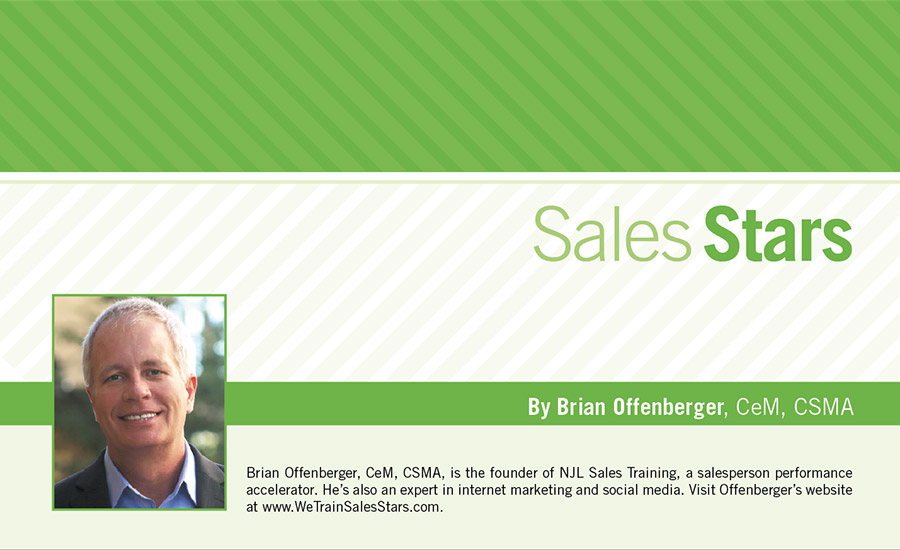How to boost referrals for your security sales

For most organizations, getting their salespeople and account-based selling teams consistently asking for referrals is like getting a kid to consistently eat their vegetables. It just doesn’t happen.
And that defies logic because even the greenest of salespeople and newest of sales managers know referrals lead to be the easiest sales at the highest margins.
So why aren’t you getting more referrals? And what can you do about it? I’ve been asking those questions of a lot of sales managers and salespeople at conferences and trade shows. Here’s my take on the situation.
Problem 1 – No KPIs for Referrals
Most organizations have no metrics or other indicators of success for referrals. Account-based sales teams and individual salespeople do the activities they are measured on; because referral selling isn’t measured, it often doesn’t happen.
It’s important to have salespeople and sales teams focus on the right activities. That’s why including metrics for referrals is so critically important.
I urge you to include these measurements about referrals as part of your metrics reporting packages:
- Number of people asked
- Number of referrals received
- Number of referrals you asked to buy something
- Number of referral deals closed
Problem 2 – Referral Selling Isn’t a Priority
“My sales manager never asks me about referrals,” said one home security sales rep. How can generating referrals be a priority for a company if sales leaders never discuss them with salespeople?
The best way to get more referrals is to spotlight them. Keep reps focused, on track and accountable for referrals. Find out by name during coaching sessions who they asked and will ask for referrals. Get the specifics about the outcomes and avoid the generalities. You want specific details on each situation. Talk about referrals with your reps all the time.
Problem 3 – Reps Fear Being Told No
Few things are more personal than asking for a referral. That’s when things get real. There’s no anonymity like prospecting when dialing or emailing.
With referrals, we’re asking someone we know, often to their face, to tell us the contact information for their friends or colleagues so we can contact them about selling something. That’s scary stuff! We could be told no and get our egos crushed. We don’t want to be pushy or appear desperate for business.
Help your sales reps understand that asking for referrals isn’t intrusive or pushy. Most people love to tell others about their positive experiences.
Train your sales reps on when and how to ask for referrals, just as you would any other sales skill. The better they are at the process, the more comfortable they will be.
And make sure they look at the situation the right way. People like to help other people. If they and your company have done a good job, your customers will be eager to refer you to others.
Problem 4 – Your Sales Reps Are Lazy
Let’s face it – today’s salesperson has become a little lazy. They rely too much on other things beside themselves to generate leads. Between online ads, social media, email, automated calling, inbound marketing teams and text messaging, salespeople have gotten a little soft. Technology is generating the leads for them and they are chasing them down.
Working Google and other digital leads takes time. Those leads are often generated by an influencer, not a decision-maker. There’s often loads of competition.
Savvy companies and salespeople know that the best way to get with prospects is through personal connections in the form of introductions through others. It’s easier to get to decision-makers. The sales cycle is shorter. There are less competitive pressures.
If you want to make a difference in your company’s sales in 2019, teach your reps how to ask for referrals. Establish goals and metrics and hold reps accountable for results.
You’ll generate better qualified leads, shorten sales cycles, improve margins and foster stronger customer relationships.
Brian Offenberger, CeM, CSMA, is the founder of NJL Sales Training, a salesperson performance accelerator. He’s also an expert in internet marketing and social media. Visit his website at www.WeTrainSalesStars.com.
Looking for a reprint of this article?
From high-res PDFs to custom plaques, order your copy today!







